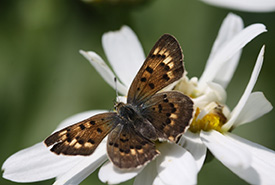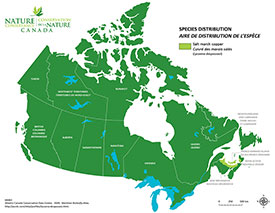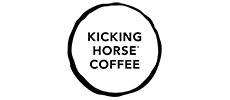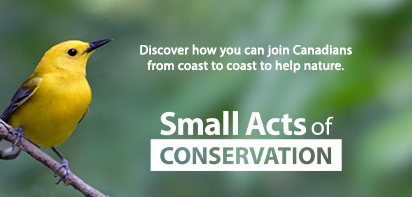
Salt marsh copper (Photo by Michel Larrivée, CC-BY-NC)
Salt marsh copper
Identification
Also known as maritime copper, males in this species have a dull purple in colour on their wings, with large black spots on the top and underside. Females are similar in size, with brown wings featuring yellow bands of colouring. Larvae and pupae are green.
Similar in appearance to the dorcas copper, maritime copper is larger in size and a duller shade of purple.
Range/habitat
This species is unique to Canada, with populations found only in salt marshes along the Gulf of St. Lawrence coasts of Quebec, Nova Scotia, New Brunswick and Prince Edward Island.
Behaviour
Salt marshes provide habitat for salt marsh copper. The larvae feed on silverweed, while adults use sea lavender for nectar. This species can be seen in flight from July to August.
Conservation status
Salt marsh copper is only found at about 25 sites and is of both national and global conservation concern.
What is NCC doing to protect habitat for this species?
The Nature Conservancy of Canada (NCC) protects habitat for salt marsh copper at nature reserves in Neguac, Tabusintac, Baie Verte and Grand-Barachois in New Brunswick, as well as Abram-Village and Percival River in Prince Edward Island.





